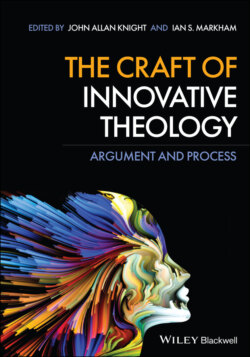Читать книгу The Craft of Innovative Theology - Группа авторов - Страница 12
Every Good Piece of Writing is an Answer to a Question
ОглавлениеWhen reading any source, whether it’s an ancient text or a scholarly book or article, it’s important to figure out just what question the author is asking. That is the first step in any good interpretation. But focusing on the question is important not only for reading well but also for writing well. When you’re setting out to write an essay, make sure you have a good question. But what makes a question a good one? To our minds, a good question has several characteristics. First, it should be authentic – that is, it should be original to your essay. That doesn’t mean that no one has ever asked it before. Rather, it should be a question that either has not been answered or has not been answered to your satisfaction. In your hands it is a question that can yield an original contribution to scholarship in theology. And making an original contribution will be the most important consideration in determining whether your essay is publishable.
Second, a good question is one that is answerable. There are two parts to this characteristic. First, there must be evidence or arguments capable of supporting a reasonable answer. Take, for example, the following question: “What did prehistoric people think were the most persuasive forms of argument?” Since the people in question are prehistoric, there won’t be any evidence to support an answer. Second, it must be capable of an answer within the space constraints of the journal – normally around twenty pages or so. “How have the relations between church and state changed in Europe between the middle ages and the present?” It’s questionable whether a book would have sufficient room for an adequate answer to that question; certainly an article is too short.
Third, a good question is one that is consequential. If the answer to the question – your thesis – is shown to be true, there will be consequences for the field. Perhaps it will open up new ways of thinking about some particular question; perhaps some conventional view will have to be changed. These consequences tie into the question of motivation. What is motivating you to write this essay? Very often it will be to provide a counterargument to some view you think mistaken. It might be to lay the groundwork for a new direction in addressing some theological issue. Essentially, a good question can provide a follow‐up answer to “So what? So what if you’re right?” If you’ve formulated a good question, you’ll be able to answer the “So what?” question by articulating the consequences of your answer. And these consequences should be spelled out in your conclusion.
